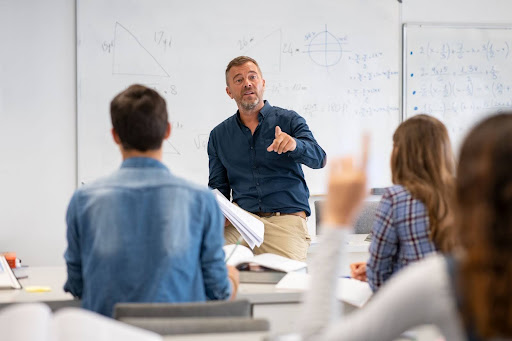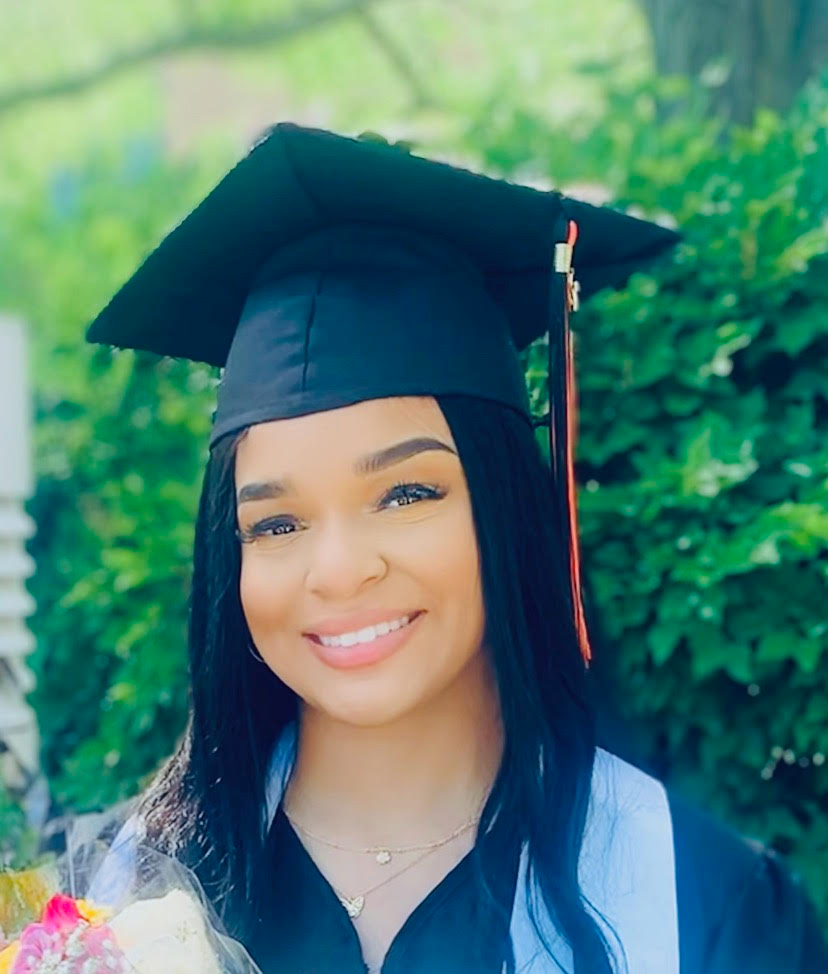How Great Teachers Help Build New Teacher Pipeline

Recent research by the Annenberg Institute for School Reform at Brown University confirms that teacher shortages remain a significant challenge for schools across the United States, with the situation worsening since the COVID-19 pandemic. According to the National Center for Education Statistics, the struggle to fill vacancies and retain experienced educators continues with 86% percent of U.S. K-12 public schools reporting challenges hiring teachers for the 2023-24 school year. This has put immense pressure on school districts nationwide.
Although it is recovering from early post-pandemic levels, resolving the teacher shortage must remain a national priority especially in certain subjects, such as math, science, and special education, and in high-poverty and rural schools, where the shortage is particularly acute. The "Raise the Bar: Eliminate the Educator Shortage" initiative represents a current federal response to the issue. A comprehensive effort to address the nation’s ongoing teacher shortage crisis, one of its key focus areas is investing in teacher pipeline programs to attract and prepare new educators for the profession.
To complement these policy initiatives, there's a growing recognition of the importance of inspiring the next generation of teachers through positive educational experiences. Exceptional educators have the power to create memorable, life-changing learning experiences that can spark students' interest in pursuing teaching as a career. The Rutgers Alternate Route program exemplifies how personal experiences with inspiring teachers can influence career choice and help build a new teacher pipeline. Candidates in this alternative certification program have shared anecdotes about the great educators who influenced their decision to become teachers themselves after experiencing their engaging lessons, inclusive classroom culture, subject passion, and genuine concern for students.
Engaging Lessons
Great teachers can transform potentially boring content into captivating and memorable learning experiences. By employing various strategies and techniques, they create an environment that stimulates curiosity, encourages active participation, and fosters deep understanding.
Chelsea A. describes how her English and U.S. History teachers adapted to their music-themed high school's climate:
"They incorporated arts like poetry, music, and theater into lessons, making concepts more engaging and easier to grasp. For example, in history class, we created poster boards about famous people, including the 5Ws, and dressed up as them. When learning about the Hiroshima bombing, students wrote and performed songs. This approach made students excited about learning and eager to attend class."
Mackenzie C. highlights Nancy's diverse teaching methods:
"Nancy exemplifies an expert teacher, surpassing mere experience. She employs diverse methods to keep students engaged, including whiteboards, flashcards, and running games. Nancy excels at meeting students at their academic levels and adapting assignments accordingly. She always has backup activities ready, even if not written down. Additionally, Nancy skillfully connects lessons to other school topics and current events, fostering deeper understanding."
Sydney E. recalls her college professor's innovative approach:
"She formed cohesive assignments that helped us understand the experience of English language learners by putting us in situations where we went to locations with different quality food goods from other countries. She wanted her students to place themselves in the shoes of an English language learner. She would always have us assess our students and create lesson plans that fostered flexibility and deeper thinking in the subject areas we taught. There was always a challenge placed upon us, which John Hattie speaks about a lot regarding expert teachers creating challenges for their students."
Rachel N. reflects on her AP U.S. History teacher, Mr. Schwartz:
"Mr. Schwartz exemplified exceptional teaching. His dynamic, fluid, and flexible teaching style provided surface learning and deep comprehension of American history. His engaging approach included mock debates, primary sources, and diverse representations of subject matter, encouraging mastery over performance. Mr. Schwartz created an optimal learning environment where students felt comfortable taking risks, demonstrating expertise in education and student encouragement."
Positive and Inclusive Learning Environments
Expert teachers create engaging and productive learning environments that inspire and challenge their students by setting high expectations for behavior and achievement and effectively personalizing instruction for students. Several new teachers in our program discussed the importance of the learning environments their teachers established and takeaways for their own professional practice.
Faiza Z. fondly remembers her second-grade teacher, Mrs. Celeste Walters:
"Mrs. Walters was a highly skilled, whimsical, and passionate educator for the Philadelphia School district. She had creative ways of depicting content, such as songs about learning the times tables. Her high situational management skills allowed her to assess and manage conflicts between students quickly. Moreover, she provided concise, respectful, and skillful feedback. Mrs. Walters created a positive learning environment and brought joy to staff, students, parents, and the community."
Keisha W. classifies her 3rd-grade teacher, Ms. Delouch, as an expert:
"Ms. Delouch was great at blending subject expertise with creative teaching techniques, making our classroom an engaging and inclusive environment. She catered to individual learning styles, encouraged critical thinking, and nurtured a love for reading within her students. A funny story I tell my children today is how Ms. Delouch encouraged my love for reading by telling me to read everything, including signs on the wall and the newspaper. Her 'Pro Tip' was to take the newspaper's comic section to the bathroom, which led me to fall in love with words and reading."
Timothy W. reflects on his robotics teacher, Mr. Coren:
"Mr. Coren inspired me to pursue STEM in college. He was extremely empathetic and held high and differentiated expectations for all his students. He prepared many lessons, teaching three different classes each year but splitting each class into two groups with specific and rigorous assignments. This demonstrated the high expectations he had for all his students."
Brianna T. recalls her 7th-grade teacher, Ms. Gilda Brooks:
"Ms. Brooks took the time to learn and adjust to her surroundings, being a suburban woman teaching in an urban environment for the first time. She made sure her classroom was always welcoming and promote academic growth. She constantly adjusted lessons to make understanding concepts easier and applied effective methods to encourage student success. As a student transitioning from Catholic to public school, she helped me integrate the two experiences, shaping me into the person and educator I am today."
Subject Passion
Expert teachers often exhibit a deep passion for their subject matter, translating into engaging and inspiring lessons for their students. This enthusiasm not only makes the content more accessible but also ignites a similar interest in their pupils, often influencing their future academic and career choices.
Daniel A. recalls his 8th-grade history teacher's innovative approach:
"My 8th-grade history teacher presented the American Revolution as a breaking news segment, making the textbook almost non-essential. He brought the events to life by passing around real and replica artifacts, seamlessly managing the classroom, and incorporating breaks and conversations into the lessons. His passion and method inspired me to seek historical artifacts and instilled a lifelong mastery of the subject."
Georgette S. reflects on her high school music teacher's lasting impact:
"My high school music teacher demonstrated expertise in his subject area and was responsible for much of my personal development. He was proficient at providing feedback and challenging his students to become better musicians. His passion for music was evident in his knowledge of history, theory, and playing techniques. Even a decade after graduating, I still look up to him and hope to emulate his expertise as a teacher."
Tabatha P. describes her 8th grade Enrichment Social Studies teacher, Mr. Massara:
"Mr. Massara exemplifies Hattie's concept of an 'expert' educator. During a Greek/Roman culture lesson using Holst's 'The Planets,' he demonstrated flexibility by adapting to different student types and schedules. He monitored the class effectively, preventing disruptions and assessing interest levels. Mr. Massara encouraged critical thinking through discussions and personalized feedback. His ability to connect with students personally showcased his holistic approach to education."
Mark W. shares how his high school economics teacher influenced his career path:
"My high school economics teacher exemplified expert teaching, inspiring my college major choice. He was passionate and made classes enjoyable. His mastery of content was evident in his multi-faceted approach: lectures, relating topics to current events, and real-world simulations with presentations. He treated all students with respect and positivity. His teaching methods resulted in my deep understanding and interest in economics, reflecting his expertise as an educator."
Student Relationships
Expert teachers possess a unique ability to cultivate meaningful relationships with their students, establishing an environment that fosters growth and learning. These exceptional educators go beyond merely imparting knowledge; they connect with their students personally, nurturing their intellectual curiosity and instilling a passion for learning. Such impactful student-teacher relationships influence the present and leave an indelible mark on the future.
Molly B. describes Professor Rhiannon Welch's approach to teaching Global Neorealism in Film:
"Professor Welch exemplified expert teaching. She was well-prepared, facilitated student-led discussions, and remained flexible. She created a collaborative learning environment, respecting students' opinions and adapting the syllabus to suit the class's needs. Her extensive knowledge was used to engage students rather than simply presenting information. This approach included students in their education, demonstrating Welch's expertise as a teacher."
Thomas D. recalls his high school math teacher's dedication to student success:
"My high school math teacher would be classified as an expert. His attributes included anticipation, planning, improvisation, and being very context-dependent. His best attributes were monitoring learning and providing feedback. He thoroughly explained topics when students were struggling, offered extra-help sessions, and created a friendly classroom environment where students were not scared of getting questions incorrect. This illustrates that he was an expert teacher and cared about his students' development and success."
Toni Mari O. reflects on her sophomore year chemistry teacher, William Eichert:
"He was the most encouraging, understanding, and positive teacher I have ever met. He taught with strict love, showing us that he cared about us and acknowledged that our education must be a priority. Unlike a novice teacher, he loved what he was teaching. His lectures were passionate and exciting. He is what I want to reflect as an educator."
Kristina E. describes Anthony Marck's exceptional ability to connect with students:
"Anthony Marck exemplifies an expert teacher with quick problem-solving skills, unmatched personality, and drive. He bonds easily with students, offering coaching and motivational quotes. As mathematics, special education, and 'Character with Character' teacher, Anthony runs the freshman mentor program and demonstrates exceptional student outreach. His impact is evident as struggling students prefer him over guidance counselors, and even self-contained students seek his support during meltdowns. Anthony's ability to create a safe space for students while maintaining high academic standards speaks volumes about his expertise as an educator."
Managing Behavior
Effective teaching encompasses the critical skill of managing behavior in the classroom. Expert teachers create learning environments that foster positive student character and encourage risk-taking and academic growth.
Brianna M. identifies Ms. Megan Kilanowski as an expert in classroom management:
"Ms. Megan Kilanowski demonstrates highly effective classroom management. Students respect her; she only needs a little energy to command the room's immediate attention and silence. Due to this, and her ability to maintain brevity and conciseness when delivering exact instructions, the lesson plan's goals are met during the desired time frame without fail, and there is little need to repeat instructions and waste class time on repeatedly clarifying expectations. By the end of the class, students don't feel micromanaged, she doesn't feel burnt out or exhausted, and appropriate classroom goals are met. From her, I learned the unequivocal importance of maintaining clear and consistent guidelines and expectations of classroom management."
Myrcele N. reflects on her Visual and Performing Arts (VPA) teachers as expert educators:
"My VPA teachers demonstrated expert classroom control and articulated expectations for individual students and the class. They implemented daily and weekly goals, allowing students to track their progress and helping teachers identify improvement areas. In performing arts settings, time management was crucial for skill mastery. These teachers excelled at assessing student abilities, applying skills through demonstrations, and reassessing to ensure learning retention. Their consistent feedback on task-based activities reinforced areas needing improvement and acknowledged mastery of specific skills."
Joseph D. discusses his high school band teacher's approach to behavior management:
"My high school band teacher powerfully represents the qualities of an excellent teacher in behavior management. Working with various students of different levels, it was inspiring to see how he adapted individualized plans for each student's growth while maintaining overall classroom discipline. He guided the class together, addressing us as one unit while holding each individual accountable to a personalized plan. This approach created a beautifully encouraging environment where we all felt different yet united. His mastery of both content and classroom management allowed him to anticipate potential behavioral issues and implement strategies that worked for each student, effectively minimizing disruptions and maximizing learning opportunities."
Expert teachers are transformative architects of learning, weaving engaging lessons, high expectations, and subject passion into a tapestry that inspires and challenges students. They forge meaningful connections, creating safe spaces for intellectual growth where curiosity thrives and risks are embraced. Masters of classroom management, these educators adapt to diverse needs, nurturing future innovators and leaders. Their impact reverberates beyond classroom walls, shaping destinies and illuminating paths to a brighter future. In many instances, they illuminate a path to the teaching profession–a testament to the profound power of educators in student development and building a new teacher pipeline.
If you’re considering following your dream of teaching, Rutgers Alternate Route can offer you the support and training you need to succeed. Be sure to follow Rutgers Alternate Route on Twitter and sign up for Alternate Route’s monthly newsletter for more information and stories from the field of education.

 DeMariah Woodard is an undergraduate student at Niagara University where she is a double major in Psychology and Criminal Justice. She supports content creation initiatives with Black Star Communications as a Digital Communications Intern for Summer 2023. Published works by DeMariah are completed in collaboration with the Rutgers Alternate Route Team and Black Star Communications.
DeMariah Woodard is an undergraduate student at Niagara University where she is a double major in Psychology and Criminal Justice. She supports content creation initiatives with Black Star Communications as a Digital Communications Intern for Summer 2023. Published works by DeMariah are completed in collaboration with the Rutgers Alternate Route Team and Black Star Communications.





